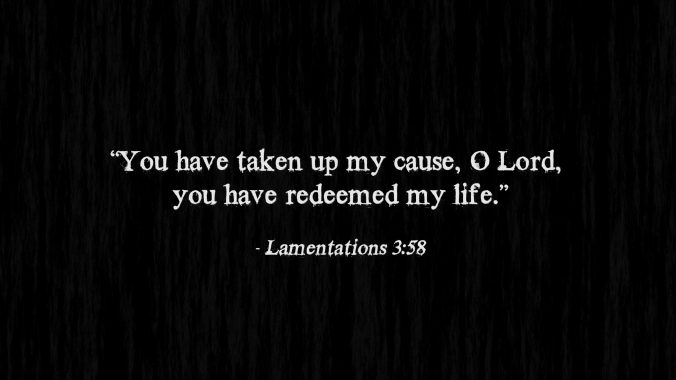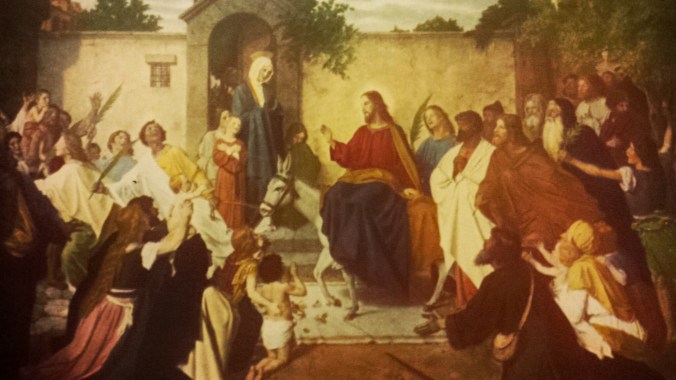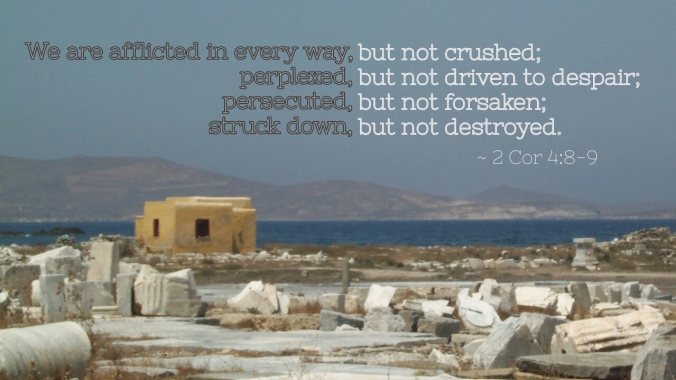
Today’s readings (click below to open in new tab / window):
Psalms 43; 149, Lamentations 3:37-58, Hebrews 4:1-16, Romans 8:1-11
How do you go on?
After one of your closest companions betrays your beloved teacher …
After fear has driven you to deny your friend and savior …
After the messiah to whom you dedicated your life lies in a tomb…
… how do you go on?
The disciples would have begun observing the weekly Sabbath shortly before sundown on the day of Christ’s crucifixion. Candles would be lit. Prayers would be said. Songs sung. Meals eaten. Outward signs of mourning were forbidden on the Sabbath. Everything would have looked normal on the outside, but inside … grief and chaos.
Whatever activity or (this being the Sabbath) inactivity occupied their bodies, the disciples’ minds must have been on the tomb, not far away, with a body freshly lain and a stone newly rolled across it. From the outside it would have looked like any other tomb, but inside … incomprehensible injustice.
The scribes and Pharisees, Herod and Pilate, and everyone else who feared or hated Christ’s teachings were settling back into a sense of restored order, perhaps even contentment that they had successfully squelched this would-be king and prevented rebellion. The world looked the same as it had before, with the same people holding power, but deep inside … the rules of victory were being rewritten.
We spend a lot of time in this state, appearing one way to the world while, for better or worse, experiencing a wholly different inner life. Holy Saturday represents the tipping point of that experience. On that day, the disciples were resigned to the calm and ordered injustice of the flesh, while their souls were in torment. After that day, they were willing to sacrifice themselves on the altar of the Gospel, because nothing could shake the peace they had found in Christ. What a remarkable change!
What state are we in today? Is our world orderly but our faith easily shaken? Is our world in turmoil but our faith a rock? Or are we somewhere in-between, living an extended Holy Saturday moment, broken but hoping despite the evidence that justice will reign?
On the outside today may seem like any other day, but inside …
Comfort: The story isn’t over.
Challenge: Sometimes we have to give up exterior respectability to find interior peace.
Prayer: God of hope, today we mourn the injustice of the world. Send us peace. Send us love. Send us Christ. Amen.
Discussion: When has your outward stability masked inward change?
Join the discussion! If you enjoyed this post, feel free to join an extended discussion as part of the C+C Facebook group. You’ll be notified of new posts through FB, and have the opportunity to share your thoughts with some lovely people. Or feel free to comment here on WordPress, or even re-blog – the more the merrier!






